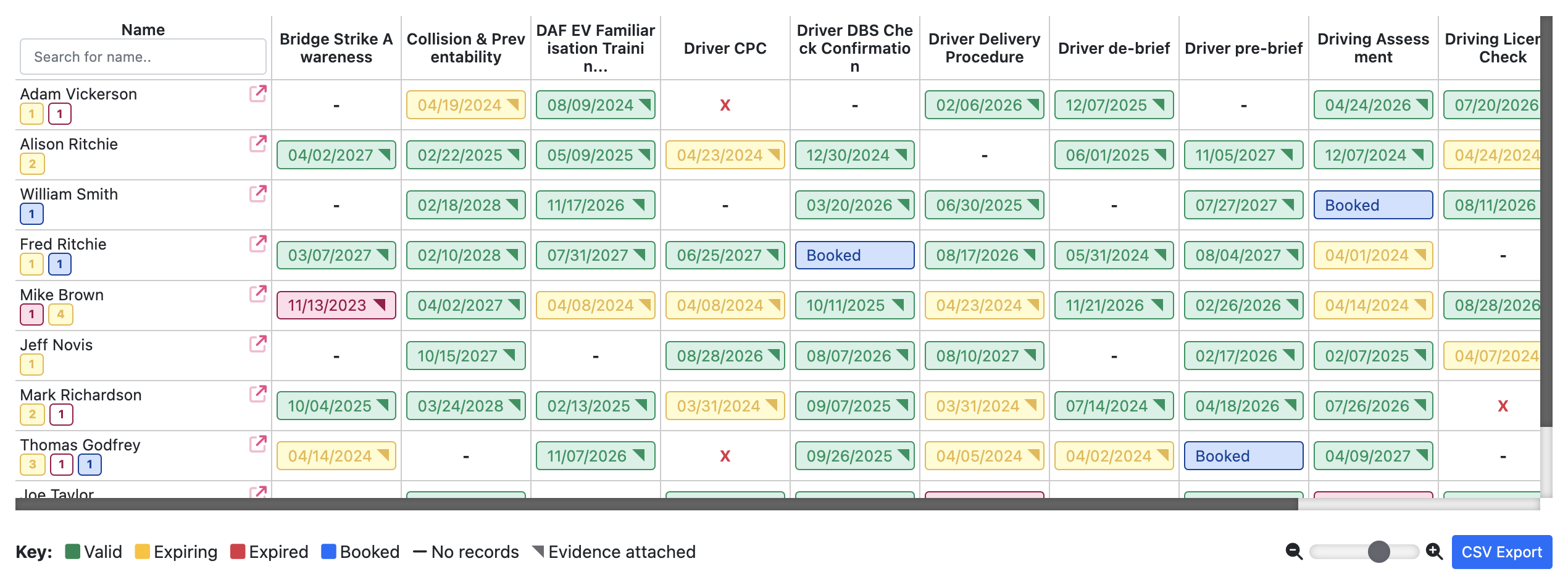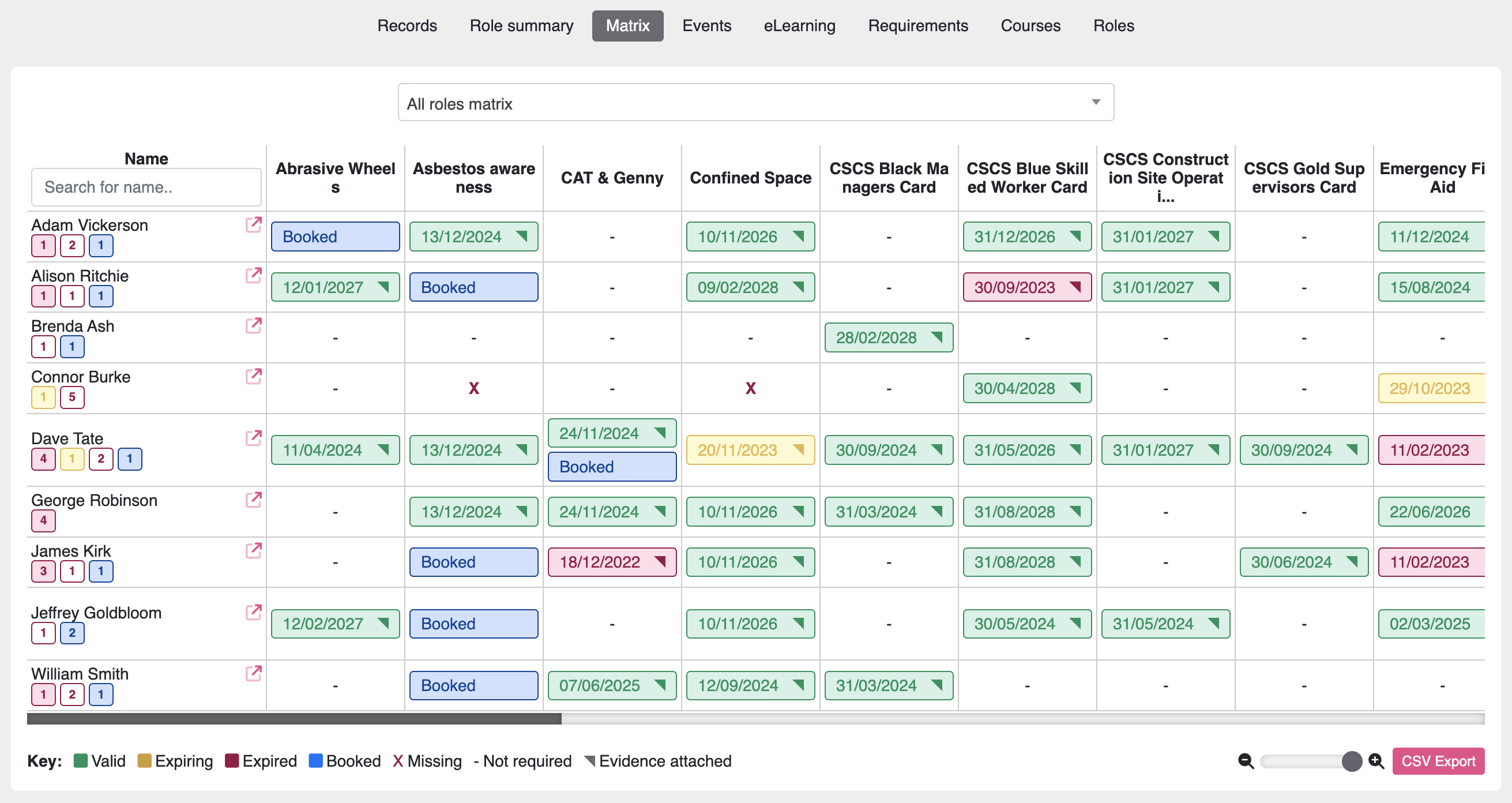As a business owner, you have a lot on your plate. From managing employees to growing your company, it can be easy to overlook important HR compliance standards. However, failing to comply with these standards can result in costly fines and legal issues, that’s why we created this HR Compliance Checklist.
To ensure your business is in line with HR compliance regulations, it’s essential to have a comprehensive HR compliance checklist. In this article, we’ll discuss the key areas you need to cover to stay compliant and avoid potential legal troubles.
Why Is HR Compliance Important?
HR compliance refers to the adherence to laws, regulations, and company policies related to employment. It covers a wide range of areas, including hiring, employee benefits, payroll, and workplace safety.
Complying with HR regulations is crucial for several reasons:
- Avoiding legal issues: Non-compliance with HR regulations can result in costly fines and legal battles that can harm your business’s reputation and bottom line.
- Protecting employees: HR compliance standards are in place to protect employees from discrimination, harassment, and other workplace issues.
- Maintaining a positive work culture: By following HR compliance standards, you can create a safe and inclusive work environment for your employees, leading to higher job satisfaction and retention rates.
What Are the Key Areas of an HR Compliance Checklist?
HR compliance covers a wide range of areas, and it’s essential to have a comprehensive checklist to ensure you’re meeting all the necessary standards. Here are the key areas you need to cover:
- Hiring and recruitment: This includes following equal employment opportunity (EEO) laws, conducting background checks, and ensuring fair hiring practices.
- Employee classification: It’s crucial to properly classify employees as exempt or non-exempt to comply with wage and hour laws.
- Employee benefits: This includes providing employees with the necessary benefits, such as health insurance, retirement plans, and paid time off.
- Payroll and taxes: Complying with payroll and tax regulations is essential to avoid penalties and legal issues.
- Workplace safety: Ensuring a safe work environment for your employees is crucial to comply with Occupational Safety and Health Administration (OSHA) standards.
- Employee relations: This includes following anti-discrimination and anti-harassment laws, providing reasonable accommodations for employees with disabilities, and handling employee complaints and grievances.
- Record-keeping: Keeping accurate records of employee information, such as payroll, benefits, and performance evaluations, is essential for HR compliance.
Essential HR Compliance Checklist for Businesses
Now that you know the key areas of HR compliance, let’s dive into the essential HR compliance checklist for businesses.
Conduct an HR Audit
Before creating your HR compliance checklist, it’s essential to conduct an HR audit to identify any areas of non-compliance. This involves reviewing your current HR policies, procedures, and practices to ensure they align with HR regulations.
An HR audit can help you identify any potential issues and take corrective action before they become major problems. It’s recommended to conduct an HR audit at least once a year to ensure your business is staying compliant.
Develop an Employee Handbook
An employee handbook is a crucial document that outlines your company’s policies, procedures, and expectations for employees. It’s essential to have an up-to-date employee handbook that covers all the necessary HR compliance standards.
Your employee handbook should include information on anti-discrimination and anti-harassment policies, employee classification, benefits, payroll, and workplace safety. It should also outline the consequences of violating company policies and procedures.
Train Your Employees
A crucial part of any HR compliance checklist is the need to properly train your employees on HR compliance standards is crucial to ensure they understand their rights and responsibilities. This includes training on anti-discrimination and anti-harassment policies, workplace safety, and employee benefits.
Training should be conducted regularly, and all new employees should receive training as part of their onboarding process. It’s also essential to keep records of employee training to demonstrate your commitment to compliance.
Ensuring employees are correctly trained to perform their role properly is critical. Conducting a training needs analysis to identify any training gaps in their training requirements is a great start.
Moralbox.com is a training management system and can help get your employee training in order and identify any training or skills gaps effectively. Check it out here.
Stay Up-to-Date on HR Regulations
HR regulations are constantly changing, and it’s essential to stay up-to-date to ensure your business is staying compliant. This includes keeping track of new laws and regulations at the federal, state, and local levels.
You can stay informed by subscribing to HR newsletters, attending webinars and conferences, and consulting with HR professionals. It’s also recommended to review your HR policies and procedures regularly to ensure they align with any new regulations.
Maintain Accurate Employee Records
Keeping accurate employee records is crucial for HR compliance. This includes records of employee information, such as payroll, benefits, performance evaluations, and training.
It’s essential to keep these records organized and easily accessible in case of an audit or legal issue. You can use HR software to help you manage and maintain accurate employee records.
Conduct Regular Performance Evaluations
Performance evaluations are an essential part of managing employees and ensuring they’re meeting job expectations. They’re also crucial for HR compliance, as they can help identify any potential issues, such as discrimination or harassment.
It’s recommended to conduct performance evaluations at least once a year and keep records of these evaluations. This can help you identify any patterns of misconduct and take corrective action.
Create a System for Handling Employee Complaints
Having a system in place for handling employee complaints is crucial for HR compliance. This includes having a designated person or team responsible for addressing employee complaints and grievances.
It’s essential to have a clear process for employees to report complaints and ensure they’re handled promptly and fairly. This can help prevent potential legal issues and maintain a positive work culture.
Review Your Hiring Practices
Your hiring practices are a crucial part of HR compliance. It’s essential to follow EEO laws and ensure fair hiring practices to avoid discrimination claims.
This includes conducting background checks and verifying employment eligibility for all new hires. It’s also recommended to have a diverse hiring panel to avoid any potential biases.
Provide Employee Benefits
Providing employees with the necessary benefits is essential for HR compliance. This includes health insurance, retirement plans, and paid time off.
It’s essential to review your benefits package regularly to ensure it aligns with HR regulations and meets the needs of your employees. You can also conduct employee surveys to gather feedback on your benefits package and make any necessary adjustments.
Conclusion
HR compliance is a crucial aspect of running a successful business. By following this HR compliance checklist, you can ensure your business is staying compliant and avoid potential legal issues. Remember to conduct regular HR audits, stay up-to-date on HR regulations, and provide proper training for your employees to maintain a positive work culture and protect your business.
Further Reading for HR Compliance Checklist
- enngage Blog on HR Compliance Checklists: This blog provides a detailed guide on HR compliance, including templates and examples of HR compliance checklists. It’s a great resource for businesses looking to understand HR compliance more deeply and implement effective practices.
- NonprofitHR: HR Compliance checklist calendar with important HR & Payroll compliance dates.
John is our co-founder and is responsible for software design and development and loves helping people solve problems using innovative software.


